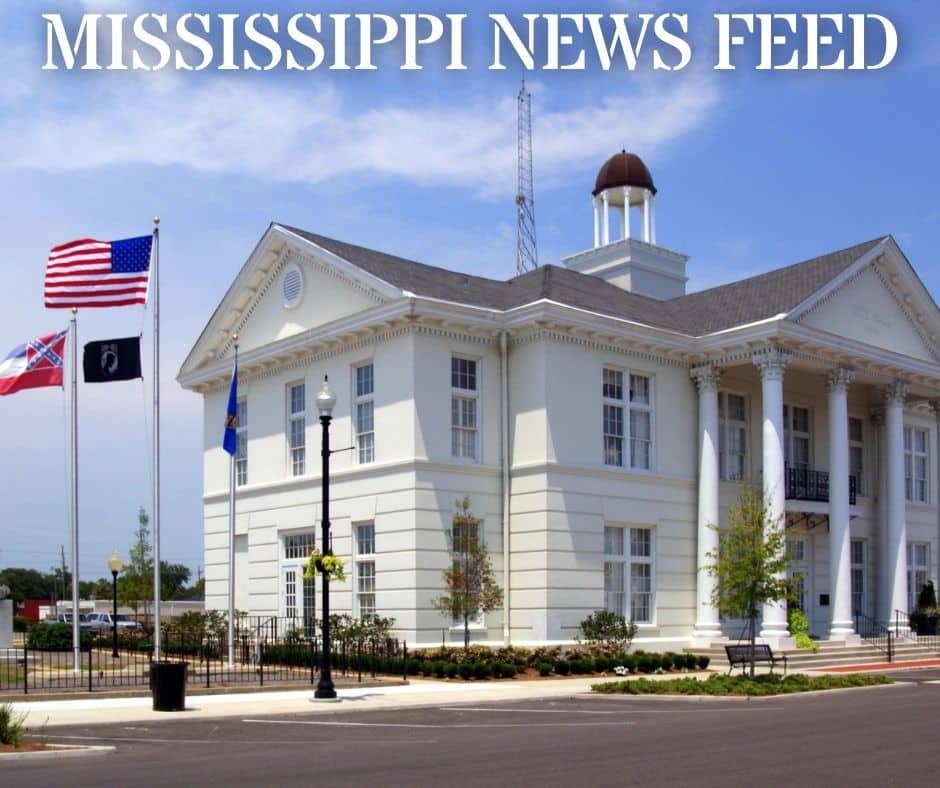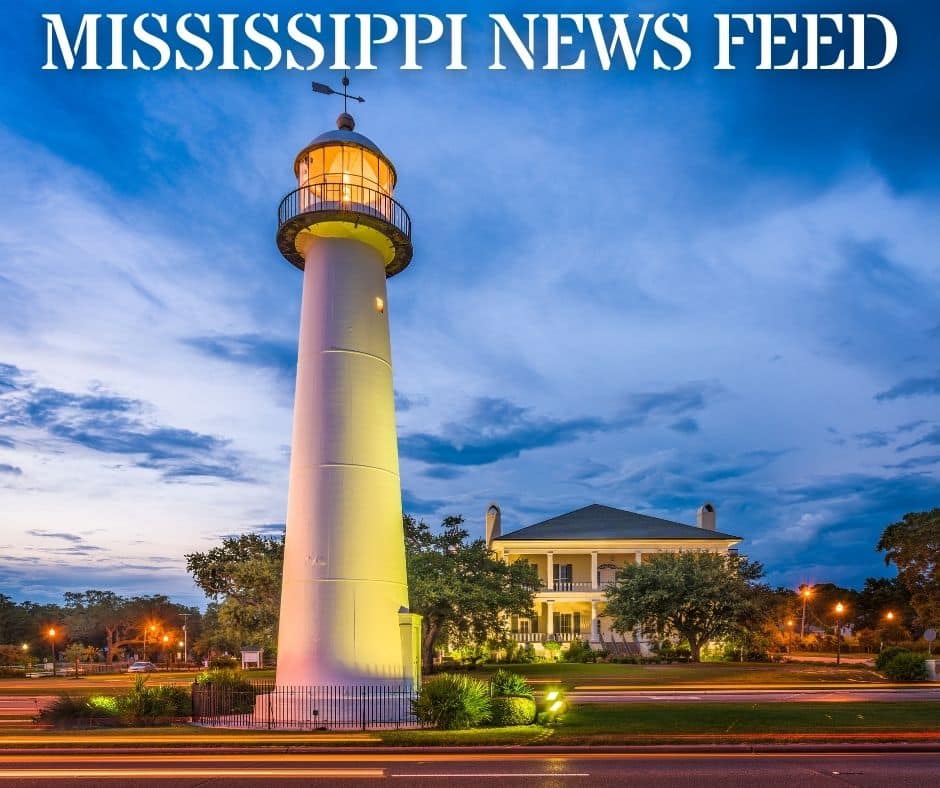Magnolia Tribune
Katrina’s Voices from Ground Zero
Author NK Wessman shares the voices of those who owned the responsibility for managing through Hurricane Katrina, those who get paid to stay behind to protect and serve.
Katrina—not my storm, not my job.
As the storm we now know as Hurricane Katrina developed off the west coast of Africa grew from a tropical depression over the southeastern Bahamas, built across the Atlantic, plowed over extreme south Florida, grew stronger over the hot and fairly shallow Gulf of Mexico, and then hammered the Mississippi Gulf Coast, I watched and worried. For the first time in a quarter-century, I was not responsible for preparedness or response communications. I had retired from state service, no longer responsible for getting the word out before the storm and communicating important public health messages afterward.
For the first time in twenty-five years, my only job was to assure personal security for my family, not to help manage population-based preparedness, not even to report as a journalist and public relations practitioner. As communications director for the Mississippi State Department of Health, I had been duty-bound to warn people about the danger hurricanes bring, the harm they can inflict, the debris and hazards they leave behind. What should individuals do to get ready? Should they move to a place beyond the storm’s direct path? How could they deal with lost water pressure, thawed food, cuts and scrapes? Where could they get emergency medical care? My job required that I answer those questions, and on the response team I helped return the community to better, safer, healthier through ensuring people had access to information and connections to disaster recovery assistance.
The National Weather Service labels Katrina “A Killer Hurricane Our Country Will Never Forget.” The costliest hurricane to ever hit the United States and one of the five deadliest hurricanes to ever strike the United States, the bitch storm was responsible for 1,833 fatalities and approximately $108 billion in damage (un-adjusted 2005 dollars).
New York Times bestselling author Douglas Brinkley devoted to Mississippi a chapter of his book The Great Deluge: Hurricane Katrina, New Orleans, and the Mississippi Gulf Coast, released in early 2006. He called the storm a history-altering natural disaster and wrote in introductory notes: “My hope is that this history, fast out of the gates, may serve as an opening effort in Katrina scholarship, with hundreds of other popular books and scholarly articles following suit. Only by remembering, and holding city, state, and federal government officials responsible for their actions, can a true Gulf South rebuild commence in the appropriate fashion.”
Brinkley’s confidence challenged me, especially when the calendar changed to 2008 and I realized that nobody had told Mississippi’s story, not really.
What really happened before, during, and after landfall to the people who owned the responsibility for managing the storm? Who were they, and how did they survive? The people who get paid to stay behind, the individuals who work to protect and serve through the local offices of government and related organizations—were they ready for what hurricane watchers predicted, “the next Camille?”

Phil Hearn wrote about Camille in his Monster Storm. But the real mother of all monster storms struck August 29, 2005.
When I published my book, Katrina, Mississippi: Voices from Ground Zero, ten years after the storm, I knew their stories still bothered many first responders, the individuals whose jobs then centered on protecting and serving the 190,000 citizens of Harrison County and some 46,000 who called Hancock County home.
Before Katrina hit, roughly 200 women and men hunkered in the Harrison County Emergency Operations Center (EOC) within the County Courthouse in Gulfport. Only thirty-five stayed in Hancock’s EOC in Bay Saint Louis. They voluntarily stayed in that bunker and in that repurposed bowling alley because they owned the responsibility for managing the unthinkable.
My Katrina work began after the search and rescue, after the response, and well into the recovery and initial rebuilding phase.
I first saw the infinite void Katrina left—miles and miles of emptiness westward from Highway 49 in Gulfport to the Bay of Saint Louis and beyond—in January 2007. I went to the Coast as a freelance reporter for Mississippi Medical News, to cover a meeting of the State Board of Health. Most of the debris had been removed; nothing looked as it had before the storm. Even ten years later, nothing looked the same: landmarks were gone, constructions that resemble bombed-out buildings in the world’s war zones remained in a few places, and new facades over structures that miraculously kept their foundations and at least some of their bone structure.
Even the faces of the folks in charge for emergency management in 2005 compared to those responsible in 2015 had changed. Some simply moved on to other jobs or went back to their pre-storm responsibilities; several retired, others passed away.
But many who shouldered responsibilities within the Emergency Operations Center, and outsiders who worked their way inside to help in the aftermath of Katrina, shared their stories with me. Through one-on-one interviews, opening their files, loaning their videos, referencing their materials—the characters had been waiting for the opportunity to tell their stories. They remained shell-shocked; some admitted post-traumatic shock; and they needed to talk, to find answers, to validate themselves.
I was compelled to write their stories about the public health impact of both the natural disaster and the unnatural consequences that emerged through human efforts. Those “champions of the storm” and I believed that their perspective and actions could bridge to whatever might become the United States’ and the Gulf Coast’s next Katrina. So far as I could discover in 2015 and now, my book is the only story told from inside the emergency operations centers of a major natural disaster.
The book reveals personal recollections of health and medical aspects, special needs victims and mass care through sheltering, pop-up medical clinics, and the sole hospital that withstood the storm and continued providing services. The book introduces characters who addressed issues related to food and water, sewers, volunteers, donations, and other emergency support functions.
Readers learn of catastrophe and courage through the experiences of a public health physician, Robert Travnicek, MD, in upheaval not of his own making but caught in a quagmire of natural disaster, local and state politics, and moral determination. EOC Commander General Joe Spraggins directs with able assistance from Rupert Lacy, a veteran law enforcement officer whose history, knowledge, and respect for the power of the storm enabled him to oversee operations for all emergency support functions and, later, succeed his boss as emergency management director. Gary Hargrove, a trained paramedic who was elected to multiple terms as coroner of Harrison County, set aside his own family’s predicament to lead search and rescue, then recovery, and, finally, identification of each person Katrina killed in his county. And Steve Delahousey, veteran EMS leader on local and national levels, made sure people with special needs were moved from harm’s way before the storm and that adequate medical care was available after.
This book documents the players’ personal and professional views as they reveal their alliances and actions, their concerns and issues, their truths and consequences. Theirs are stories about human suffering and survival—often not because of but in spite of assistance from the government. The book does not distinguish right from wrong or comment on whether individuals or organizations succeeded or failed. Readers must draw their own conclusions.
These stories—the characters’ perspective on the problems they encountered and what they themselves revealed to be their values through the storm of the centuries—can bridge to whatever becomes the United States’ and the Gulf Coast’s next Katrina.
As a journalist and public health communicator, I remain grateful to those who shared their “voices from Ground Zero.” Special gratitude to my book’s hero, Dr. Bob Travnicek, who moved to the Gulf Coast in 1990, bringing passion for public health, an outsider’s perception of how to get things done differently, and twenty-two years’ solid experience as a private family practice physician in Nebraska.
Travnicek became the first face of public health, the doc-in-charge for routine population-based health matters and the leading expert for all-hazards preparedness and response. And in that place, he learned from Wade Guice, director of Civil Defense in Harrison County for thirty-five years from 1961-1996, who spent most of his life preaching hurricane preparedness around the world. In that place in 2005, Travnicek firmly faced Mississippi’s greatest threat, Hurricane Katrina.
From 2008 through and after publication, Travnicek persuaded, encouraged, and contributed to my authoring Katrina, Mississippi: Voices from Ground Zero. He and other first responders remain “Champions of the Storm,” immortal—as Faulkner proclaimed—because they have “a soul, a spirit capable of compassion and sacrifice and endurance.”
The post Katrina’s Voices from Ground Zero appeared first on Magnolia Tribune.
…
By: NK Wessman
Title: Katrina’s Voices from Ground Zero
Sourced From: magnoliatribune.com/2023/08/25/katrinas-voices-from-ground-zero/?utm_source=rss&utm_medium=rss&utm_campaign=katrinas-voices-from-ground-zero
Published Date: Fri, 25 Aug 2023 13:00:00 +0000
Magnolia Tribune
Staring mortality in the face at Christmas
My friend Jarrod is dying after an eight year battle with cancer. He’s lived a life worth celebrating, one that has drawn people to Christ.
I was going about my business this week when I received a text that stopped me in my tracks. A college friend was being moved to hospice care.
Jarrod Egley was diagnosed with colorectal cancer in early 2017. In the fall of 2018, tests revealed the cancer had spread to his lungs and Jarrod’s cancer was classified as Stage IV.
For almost eight years from the date of the original diagnosis, he’s fought. Through surgeries, radiation, endless rounds and cycles of chemotherapy, and experimental immunotherapies, he’s fought.

Last year, I flew out to California and spent some time with Jarrod and his wife, Emily. We sat outside one night. He acknowledged to me that it was not a question of ‘if’, but ‘when’ the cancer would claim his life. I told him I was sorry, because what else is there to say?
We talked about our faith, about the trials of Job, about Jacob wrestling with God, about Paul’s affliction. But mostly we reflected on our time together in school, on the good things, and the mundane things, that happened since.
Jarrod and I met at Tulane University. One Sunday morning in the Spring of my freshman year, I rose from my dorm room bed, dressed, and began walking down Saint Charles Avenue in New Orleans with no particular agenda. I walked until I came across First Baptist Church and the thought flickered in the vacuous recesses of my brain to enter.
Some would say it was a lark. The Calvinist in me says providence. The walk that morning changed the trajectory of my time at Tulane and my life on the whole. Intervarsity Christian Fellowship and the Baptist Collegiate Ministry became central to my life and put me in regular league with Jarrod. I met him first at the BCM and we ultimately ended up attending church together.
Jarrod was a faithful servant on and off campus. He helped organize a group of us that would weekly make our way down to the Esplanade seawall on the backside of the French Quarter to feed the homeless. On Friday nights, he could be found at chapel with a small cadre of students foregoing Bourbon Street for early 2000s worship music.
Jarrod was a loyal friend in those years. Never rude or biting. Not prone to an insult for an easy laugh. Persistently encouraging. An engineering student, his mind worked linearly and was oriented to problem solving. There were never a lot of wasted words — always a lot of deliberative questions when he disagreed or did not understand a point. He exhibited intelligence, empathy, and the kind of moral conviction that sets someone apart.
He also had a wry and dry sense of humor and a penchant for beating people at Madden football. He was fair-to-midland on the ultimate frisbee pitch. Along the way, there were crawfish boils, Mardi Gras outtings, poorly attended Tulane football games, and more than a decent amount of wing eating.
After college, I lost touch with Jarrod. He moved back to his home state of California. He got married to his college sweetheart, who could not have anticipated her husband’s journey, but has been a steady and constant helpmate throughout. Jarrod became a very successful engineer and a bourbon connoisseur. One of his bucket list trips took him to Kentucky, where he got to meet and became friends with bourbon “Hall of Famer” Freddie Johnson of Buffalo Trace acclaim.

Sitting in his backyard nearly 20 years after graduating from Tulane, I saw many of the same qualities I had grown to admire when we were students together. I saw a husband who doted on and supported Emily’s passions. But I also saw someone whose body had been beaten to hell and back, who was tired, and who, like Jacob, had been wrestling with God. We quickly fell back into friendship, which perhaps is the mark of good friendship.
We all have aspirations in our youth — for the kind of spouse or parent we might be, for what we might accomplish, for what we might experience. Along the way, dreams are satisfied, modified, or they die on the vine. The clock inevitably works against all of us. That night in Oceanside, California, Jarrod, a numbers guy, saw that time was not on his side. He believed, as we all would, that he still had more to give, more impact to be made, and more things to see and experience.
After that trip, Jarrod and I stayed in touch, most frequently triggered by news of his cancer. It has been mostly the bad variety in recent months. Now spread throughout his body, down to his bones, he has lived in constant pain for months. Not even a steady diet of morphine and an implanted pain pump solve for it. Jarrod’s been hospitalized twelve times just in 2023.
But his matter of fact sense of humor and way of seeing the world remains in tact. So too does his faith that despite these trials, he has always been safe in the hands of Christ.
There are people in the world who believe that life is random, disordered, and without reason. I am not among them. I think my friend is staring mortality in the face at Christmas for a reason.
For thousands of years before Christ came, there was darkness and despair. Sin and shame gripped the hearts of men. Until one holy night, God, in His infinite love, mercy and wisdom, sent His son to save. Jesus is the light of the world and the hope of man. He has won victory over death and Jarrod’s will not be the exception. Jesus came for Jarrod, and for you.
For thousands of years since Jesus’s death, burial, and resurrection, His disciples have been used as divine instruments to point the way to God. Jarrod is among them. If life expectancies were the measure, Jarrod would be at the midway point for most people. He’s made a lifetime of impact for the Kingdom and on other people.
So, to my friend Jarrod, you were placed here with a purpose. You have run your race. You are loved. And when this chapter closes, you will hear “well done, my good and faithful servant.” There is no greater evidence of a life well lived.
While Jarrod and Emily have been fortunate to have health insurance, their portion of the medical bills so far in 2023 have eclipsed $30,000, and Emily is facing additional uncovered expenses during Jarrod’s hospice care, including a night nurse that costs over $400 a night. If you would like to help defray the cost, a contribution can be made at their Go Fund Me page.
The post Staring mortality in the face at Christmas appeared first on Magnolia Tribune.
…
By: Russ Latino
Title: Staring mortality in the face at Christmas
Sourced From: magnoliatribune.com/2023/12/16/staring-mortality-in-the-face-at-christmas/?utm_source=rss&utm_medium=rss&utm_campaign=staring-mortality-in-the-face-at-christmas
Published Date: Sat, 16 Dec 2023 15:05:22 +0000
Did you miss our previous article…
https://www.biloxinewsevents.com/magnolia-mornings-december-15-2023/
Magnolia Tribune
Magnolia Mornings: December 15, 2023
Important state and national stories, market and business news, sports and entertainment, delivered in quick-hit fashion to start your day informed.
In Mississippi
1. Laurin St. Pe’ named CEO of Singing River Health System

The Board of Trustees of Singing River Health System announced the immediate appointment of Laurin St. Pe’ as the Chief Executive Officer on Thursday.
“We are thrilled to announce Laurin St. Pe as the new CEO of Singing River,” said Steve Ates, Board President in a statement. “His wealth of healthcare experience and proven track record make him the ideal leader to steer our health system toward its next phase of growth and success.”
St. Pe’, who has been serving as Interim CEO since July 2023, said he is honored to assume the role of CEO at Singing River. He has worked at Singing River as Administrator of Singing River Health System’s Pascagoula Hospital and Gulfport Hospital, in addition to overseeing program service lines throughout the entire system to his subsequent appointment as Chief Operating Officer of Singing River.
The health system says St. Pe played a crucial role in the financial revitalization of Singing River Health System while steering the organization toward financial stability.
2. Gulfport-Biloxi airport, Stennis evacuated after threats

The Gulfport-Biloxi International Airport was evacuated on Thursday morning “out of an abundance of caution,” airport officials said, after receiving an emailed threat to certain transportation entities across the state.
The airport was thoroughly security swept, cleared and reopened in just over two hours. Gulfport-Biloxi is now operating regularly.
The threat was also sent to Stennis International Airport. Their staff and personnel were also evacuated until the facilities could be swept and cleared.
Any passenger whose travel was affected by the evacuation is encouraged to contact their respective air carrier.
3. Cassidy arrested in Iowa for beheading Satanic Temple statue
Former Mississippi congressional and legislative candidate Michael Cassidy was arrested this week in Iowa for beheading a statue at the state’s Capitol erected by The Satanic Temple.
Cassidy reportedly decapitated the statue and turned himself to police on Thursday. He was charged with fourth degree criminal mischief. He then started an online legal defense fund where he’s raised upwards of $20,000 as of Thursday night, according to his X account.
4. “Serial fraudster” ordered to cease offering investments into companies
According to the Mississippi Secretary of State’s office, on October 26, 2023, Secretary Michael Watson and the Securities Division issued an order against Stephone N. Patton. The SOS says Patton is a serial fraudster with multiple criminal convictions in Mississippi and Florida.
Through business filings with the SEC and Mississippi, Patton has held himself to be the CEO of various companies, including Star Oil and Gas Company, Inc., North Gulf Energy Corporation, Inc., Patton Oilfield Services, Inc., and Patton Farms, LLC.
The SOS says using these business filings and company websites, Patton claimed to have raised hundreds of billions of dollars through investment opportunities. Through investigative efforts and collaboration with the SEC, the SOS discovered none of Patton’s companies are operational, have any assets, or generate any revenues. Account records show Patton spent investors’ funds almost as soon as he received them on personal expenses. The total amount of known investments made to Patton’s fraudulent companies is over $80,000. Further, none of Patton’s investment offerings have been registered or notice filed with the Mississippi Secretary of State’s Office.
The SOS order requires Patton to cease and desist from offering investments with his companies, requiring Patton to permanently deactivate his companies’ websites to prevent any further dissemination of his false or misleading information. Patton is also ordered to pay an administrative penalty of $25,000 to the Mississippi Secretary of State’s Office for these violations, in addition to restitution owed to all his Mississippi investors.
National News & Foreign Policy
1. Congressional retirements mounting as 2024 election cycle nears
Retirement and departure announcements are piling up ahead of the start to the 2024 election cycle. The New York Times has developed a Retirement Tracker that currently shows 22 Democrats and 11 Republicans who are in Congress now will not be seeking re-election next year.
“Dozens of members of Congress have announced plans to leave their seats in the House of Representatives, setting a rapid pace for congressional departures, with more expected as the 2024 election draws closer,” the NY Times reports. “Given Republicans’ razor-thin House majority, the wave of exits has the potential to lead to a significant shake-up next year.”
You can find the tracker here.
2. Texas, Daily Wire, The Federalist sue U.S. State Department over media censorship

The U.S. State Department’s Global Engagement Center has come under fire as Texas Attorney General Ken Paxton along with The Daily Wire and The Federalist have filed a federal lawsuit alleging that the department funded technology that could “render disfavored press outlets unprofitable.” They claim that the department has helped social media – Facebook, YouTube and X (formerly Twitter) – to censor free speech while funding technologies used to censor right-leaning news outlets such as theirs.
New Civil Liberties Alliance is representing The Daily Wire and The Federalist. Paxton and the outlets claim the Global Disinformation Index (GDI), a British think tank, received a $100,000 grant from the State Department in 2021, and NewsGuard, which rates the “misinformation” levels of news outlets, received $25,000 from the State Department in 2020, according to the lawsuit.
According to the State Department’s website, the Global Engagement Center’s mission is to direct, lead, synchronize, integrate, and coordinate U.S. Federal Government efforts to recognize, understand, expose, and counter foreign state and non-state propaganda and disinformation efforts aimed at undermining or influencing the policies, security, or stability of the United States, its allies, and partner nations.
As reported by Reuters, the lawsuit cited a GDI-produced list from December 2022 that ranked The Daily Wire and The Federalist as among the 10 “riskiest sites” for news while the least-risky included The New York Times, Associated Press and NPR. Reuters notes that the lawsuit alleges such “blacklists” are reducing revenues to The Daily Wire and The Federalist along with their visibility on social media and ranking results from browser searches.
Sports & Entertainment
1. SEC releases 2024 schedules

Wednesday evening, the Southeastern Conference released the 2024 football schedules for its member schools, including of interest in the Magnolia State the schedules for Ole Miss and Mississippi State.
It is the first schedule that includes new conference members University of Oklahoma and University of Texas, bringing the conference to 16 schools. Each SEC team will play eight conference football games plus at least one required opponent from the ACC, Big Ten, Big 12, Pac 12 or major independent, each team will have two open dates.
The 2024 season will be the first year the SEC will play a schedule without divisional competition since 1991. The top two teams in the league standings based on winning percentage will play in the 33rd SEC Football Championship Game in Mercedes-Benz Stadium in Atlanta on Saturday, December 7.
2. White, Jesiolowski, Jones honored by MAIS

The Midsouth Association of Independent Schools (MAIS) in Mississippi, comprised of non-public schools, announced this week that Madison-Ridgeland Academy’s senior quarterback John White was named the 6A Player of the Year while Hartfield’s Reed Jesiolowski and Hartfield Chris Jones were named the MAIS 6A Offensive and Defensive Players of the Year, respectively.
All three have committed to play college football at the University of Mississippi.
White is Mississippi’s all-time leader in career passing yards with 15,259 yards, a record he broke during the 2023 season.
MAIS, like the Mississippi High School Activities Association (MHSAA) for public schools, is broken down into classifications, from 1A to 6A. However, MHSAA added a 7A this season.
Markets & Business
1. Consumer retail sales up as energy, gas prices move down

The U.S. Bureau of Labor Statistics reported this week that the Consumer Price Index rose 0.1% in November after being unchanged in October. Retail sales rose 0.3% in November after rising 0.2% in October, meaning consumers continue to spend at the start of the holiday season.
The CPI or inflation rate is 3.1%, higher than the Federal Reserve target of 2% but below the 9% peak in 2022 which reached a 40-year high.
As for the energy index, BLS reported that it fell 2.3% in November after decreasing 2.5% in October. The gasoline index decreased 6% in November, following a 5% decrease in the previous month.
The index for fuel oil fell in November, decreasing 2.7%. However, the natural gas index rose 2.8% over the month after rising 1.2% the previous month. The index for electricity also rose 1.4% in November, after increasing 0.3% in October.
The energy index fell 5.4% over the past 12 months. The gasoline index decreased 8.9%, the natural gas index declined 10.4%, and the fuel oil index fell 24.8% over this 12-month span.
2. Week’s market rally continues into Friday
At close of trading on Thursday, the U.S. markets continued the week’s rally, pushing the Dow up 158 points to 37,248 while the Nasdaq and S&P also made gains, 27 points and 12 points, respectively, to close at 14,761 and 4,719.
The record high for the Dow on Thursday moved futures up 102 points.
According to CNBC, the major averages are headed for their seventh straight positive week. As of Thursday, the Dow is higher on the week by 2.8%. The S&P 500 is up by 2.5%, while the Nasdaq Composite rose 2.5% this week.
Stocks rallied after the Federal Reserve left rates unchanged this week while members look towards cuts in the new year and beyond.
The post Magnolia Mornings: December 15, 2023 appeared first on Magnolia Tribune.
…
By: Magnolia Tribune
Title: Magnolia Mornings: December 15, 2023
Sourced From: magnoliatribune.com/2023/12/15/magnolia-mornings-december-15-2023/?utm_source=rss&utm_medium=rss&utm_campaign=magnolia-mornings-december-15-2023
Published Date: Fri, 15 Dec 2023 13:00:00 +0000
Magnolia Tribune
New water rates expected in Jackson come 2024; those who don’t pay face shut off
Interim Third-Party Director Ted Henifin said this week that only about 59% of the City of Jackson’s water customers are paying their bills.
JXN Water has announced new rates and fees coming in 2024. Those who are not paying will be at risk of shut offs.
The company, which was established by federal appointed interim Third-Party Director Ted Henifin, has been overseeing the city’s water system for the better part of a year.
Officials estimated that the average cost for water in the city was $76 per month for residents. Henifin clarified that JXN water will not attempt to recoup any charges prior to November 29, 2022, and will work with those who have failed to pay since that time.
He said only about 59 percent of the city’s water customers are paying their bills.
“You can’t forgive bills, so we have to be creative in how we part that,” said Henifin in reference to Mississippi’s laws that prevent giving away water.
According to a release by JXN Water announcing the rate changes, residents in single family households with small meters that use up to 748 gallons daily would see a bill increase of roughly .30 cents per day. Research indicates that the average U.S. family uses 300 gallons per day.
SNAP customers will have a new rate tier that could lower their bill by up to .69 cents per day, on average.
“Those who need to save the most benefit from saving money by drinking tap water. This new rate structure makes water affordability possible for 12,500 JXN Water customers who receive SNAP benefits,” said Henifin in the release.

Read more about the anticipated rate changes here.
New fees will also be implemented, including a new service fee of $50, service deposit of $100, returned check fee of $25, service restoration fee of $100, and meter tampering charge of $500.
JXN Water has continued to encourage residents to use the water, with Henifin going on the record in a federal status hearing saying that the water “was safe to drink.”
More conversation regarding the billing process is expected to come at next week’s Jackson City Council meeting.
The post New water rates expected in Jackson come 2024; those who don’t pay face shut off appeared first on Magnolia Tribune.
…
By: Sarah Ulmer
Title: New water rates expected in Jackson come 2024; those who don’t pay face shut off
Sourced From: magnoliatribune.com/2023/12/15/new-water-rates-expected-in-jackson-come-2024-those-who-dont-pay-face-shut-off/?utm_source=rss&utm_medium=rss&utm_campaign=new-water-rates-expected-in-jackson-come-2024-those-who-dont-pay-face-shut-off
Published Date: Fri, 15 Dec 2023 20:00:00 +0000
-

 News from the South - Oklahoma News Feed6 days ago
News from the South - Oklahoma News Feed6 days agoFeed the Children rolls out new program to help Oklahoma families
-

 Mississippi Today7 days ago
Mississippi Today7 days agoJudge tosses evidence tampering against Tim Herrington
-

 News from the South - Texas News Feed6 days ago
News from the South - Texas News Feed6 days agoFifth Ward home robbed, caught on camera
-

 Mississippi Today5 days ago
Mississippi Today5 days agoMississippians honor first Black lawmaker since Reconstruction
-

 News from the South - North Carolina News Feed7 days ago
News from the South - North Carolina News Feed7 days ago6PM News on WRAL – Friday, March 7, 2025
-

 News from the South - Tennessee News Feed6 days ago
News from the South - Tennessee News Feed6 days agoImpact of cuts to the federal government
-

 News from the South - North Carolina News Feed7 days ago
News from the South - North Carolina News Feed7 days agoNC father of 2 children dies hours after being shot on I-40 in possible road rage incident
-

 News from the South - Oklahoma News Feed3 days ago
News from the South - Oklahoma News Feed3 days agoLong Story Short: Bill to Boost Rural Mental Health and Diversion Programs Advances














































